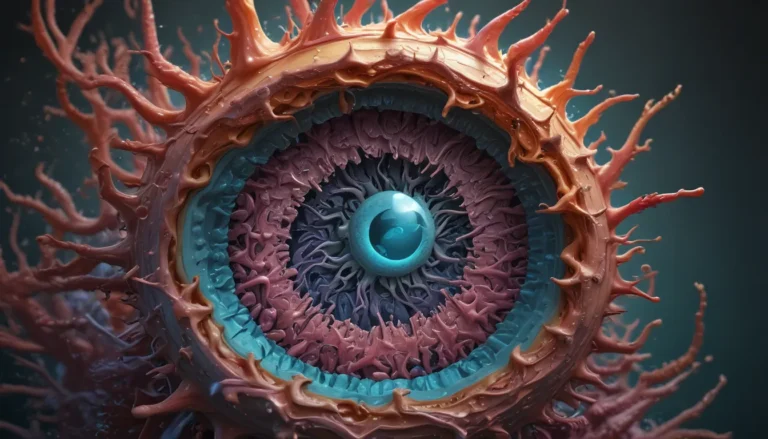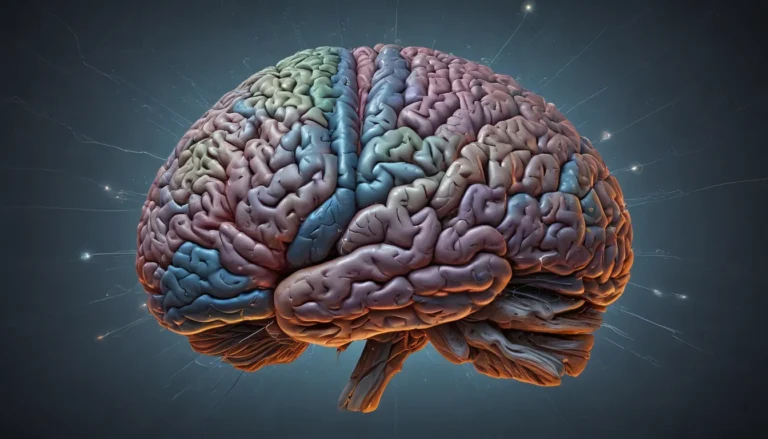A Note About Images: The images used in our articles are for illustration purposes only and may not exactly match the content. They are meant to engage readers, but the text should be relied upon for accurate information.
Have you ever wondered about the true nature of cholesterol and its impact on your health? Often portrayed in a negative light, cholesterol is actually a complex molecule essential for our well-being. From its role in hormone production to its influence on heart health, cholesterol plays a crucial part in maintaining our overall health. In this article, we will delve into nine intriguing facts about cholesterol that will change your perspective on this vital substance.
Unraveling the Importance of Cholesterol in Our Bodies
Contrary to common belief, cholesterol is not inherently bad. In reality, it is a key component necessary for our survival. Cholesterol serves as a building block for hormones, aids in the production of vitamin D, and plays a vital role in digestion by forming bile acids. Moreover, cholesterol contributes to the structural integrity of cell membranes, ensuring their stability and functionality.
Understanding the Two Faces of Cholesterol: HDL and LDL
Cholesterol is commonly divided into two types: high-density lipoprotein (HDL) and low-density lipoprotein (LDL). HDL, often dubbed as “good” cholesterol, functions to remove excess cholesterol from arteries and transport it to the liver for elimination. On the other hand, LDL, known as “bad” cholesterol, can accumulate in arteries and contribute to blockages that may lead to heart-related issues.
Demystifying Cholesterol: It’s Not Just What You Eat
While cholesterol is typically associated with animal-derived foods like eggs and meat, our bodies also produce cholesterol independently. Surprisingly, the impact of dietary cholesterol on overall cholesterol levels is minimal compared to the influence of saturated and trans fats in our diet.
The Genetic Factor: How Genes Influence Cholesterol Levels
Genetics play a significant role in how our bodies handle cholesterol. Some individuals inherit genes that predispose them to higher LDL cholesterol production or difficulties in processing cholesterol efficiently. This genetic predisposition can increase the risk of elevated cholesterol levels and related health issues.
Lifestyle Choices Matter: The Impact of Habits on Cholesterol
Our daily habits and lifestyle choices can heavily influence our cholesterol levels. Factors such as consuming a diet high in saturated fats, lack of physical activity, smoking, and excessive alcohol consumption can all contribute to elevated cholesterol levels. Making positive changes in these areas can significantly improve cholesterol profiles and overall health.
The Silent Threat: Recognizing Asymptomatic High Cholesterol
One of the concerning aspects of high cholesterol is its often asymptomatic nature. Many individuals may have high cholesterol levels without experiencing any noticeable symptoms. Regular cholesterol screenings are crucial to detect and address potential issues before they escalate and lead to more severe health conditions.
Connecting the Dots: Cholesterol and Heart Disease
Elevated levels of LDL cholesterol in the bloodstream can contribute to the development of atherosclerosis, a condition characterized by plaque buildup in the arteries. This condition poses a significant risk factor for heart disease, heart attacks, and strokes, highlighting the importance of managing cholesterol levels effectively.
The Power of Lifestyle Changes: Managing Cholesterol Naturally
Adopting a healthy lifestyle can have a profound impact on cholesterol levels. Embracing a balanced diet rich in fruits, vegetables, whole grains, and lean proteins, engaging in regular physical activity, maintaining a healthy weight, managing stress, and avoiding tobacco use are all effective strategies for managing cholesterol levels and promoting overall well-being.
A Helping Hand: The Role of Medications in Cholesterol Management
In some cases, lifestyle modifications alone may not be sufficient to control cholesterol levels. Healthcare providers may recommend cholesterol-lowering medications, such as statins, to help manage cholesterol effectively and reduce the risk of heart-related complications. Working closely with healthcare professionals can ensure personalized and effective cholesterol management.
In conclusion, a deeper understanding of cholesterol and its impact on our bodies is essential for maintaining optimal health. By incorporating healthy lifestyle habits, staying informed about cholesterol facts, and collaborating with healthcare providers, we can take charge of our cardiovascular health and overall well-being. Remember these nine intriguing facts about cholesterol as you navigate your journey towards better health and vitality.
FAQs: Find Answers to Your Burning Questions about Cholesterol
Q: What role does cholesterol play in the body?
A: Cholesterol is crucial for various bodily functions, including hormone production and cell membrane formation.
Q: What are the different types of cholesterol?
A: Cholesterol is classified into HDL (good) and LDL (bad) cholesterol, each with distinct functions and impacts on health.
Q: Can genetics influence cholesterol levels?
A: Yes, genetics can play a significant role in how our bodies handle cholesterol, impacting our risk of high cholesterol levels.
Q: How can lifestyle changes affect cholesterol levels?
A: Adopting a healthy lifestyle through diet, exercise, and stress management can positively impact cholesterol levels.
Q: Are medications necessary to manage cholesterol?
A: In some cases, lifestyle changes may not be sufficient, and healthcare providers may prescribe cholesterol-lowering medications to manage levels effectively.
In your journey towards better health, understanding the intricate workings of cholesterol is key. By embracing knowledge, making informed choices, and prioritizing heart health, you can pave the way for a healthier, more fulfilling life. Take control of your well-being by exploring the fascinating world of cholesterol and its profound impact on your health.






